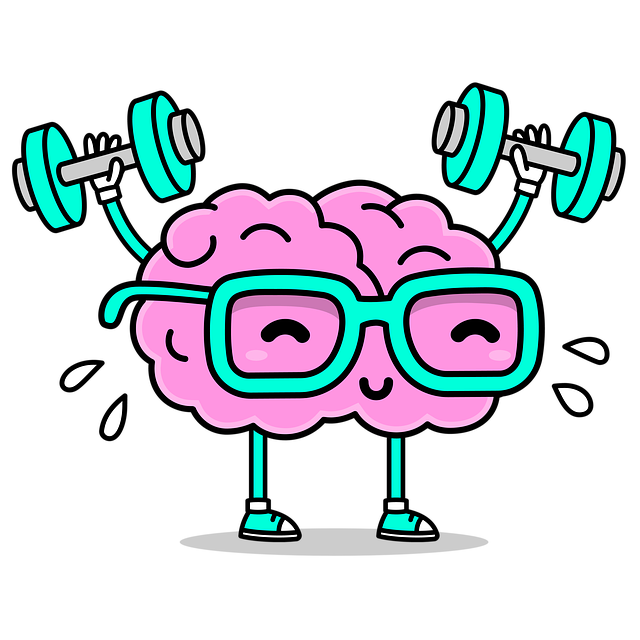Westminster Anger Management Therapy (WAMT) employs the Resilience, Fostering, and Maintaining (RFM) approach, an evidence-based strategy for building emotional strength and adaptability. By integrating RFM principles, WAMT enhances therapy, empowers individuals to overcome anger issues, and cultivates resilience through mindfulness practices, cognitive reframing, and risk management planning. This holistic model, aligned with emotional intelligence, reduces stigma, prevents burnout, and promotes long-term mental health stability for both personal growth and professional settings, particularly in high-pressure professions like mental health services.
Resilience is a vital asset, especially in navigating life’s challenges. This article explores the implementation of RFM (Resilience, Flexibility, and Mastery), a transformative framework aimed at fostering mental toughness. We delve into its impact on enhancing well-being, particularly through Westminster Anger Management Therapy. Learn how structured resilience-building exercises can be designed and applied therapeutically to support individuals in managing anger and building endurance for life’s storms. Discover key strategies for success and continuous improvement.
- Understanding RFM and its Impact on Resilience
- The Role of Westminster Anger Management Therapy
- Designing Effective Resilience Building Exercises
- Implementing RFM in a Therapeutic Setting
- Measuring Success and Continuous Improvement
Understanding RFM and its Impact on Resilience

Resilience is a key factor in navigating life’s challenges, and Recognizing, Fostering, and Maintaining (RFM) resilience is a powerful approach that has gained significant attention, especially within the context of mental health services. Westminster Anger Management Therapy, for instance, has integrated RFM principles to enhance their therapeutic offerings. By understanding an individual’s unique responses to stressful situations, this model empowers people to build emotional strength and adapt more effectively.
The concept of RFM involves recognizing personal resources, fostering positive coping strategies, and maintaining a resilient mindset. It recognizes that mental illness stigma reduction efforts can be mitigated through building resilience, as individuals become better equipped to handle stress and adversity. Additionally, burnout prevention strategies for healthcare providers often emphasize the importance of emotional intelligence, which aligns with RFM’s focus on recognizing and managing emotions. This holistic approach to resilience-building is valuable in both personal development and professional settings.
The Role of Westminster Anger Management Therapy

Westminster Anger Management Therapy (WAMT) plays a pivotal role in fostering resilience and emotional well-being. This therapeutic approach is designed to help individuals manage anger effectively, a crucial aspect of overall mental wellness. By employing evidence-based techniques, WAMT equips clients with valuable skills to navigate challenging situations, promoting self-care practices that are essential for long-term mental health stability.
The program’s cultural sensitivity in mental healthcare practice is evident in its recognition of the impact of anger across diverse communities. It offers tailored strategies to address cultural nuances and unique experiences, ensuring inclusivity and effectiveness. Through WAMT, participants gain insights into managing intense emotions while cultivating a deeper sense of self-awareness and emotional regulation, ultimately enhancing their resilience.
Designing Effective Resilience Building Exercises

Resilience building exercises are a powerful tool to enhance mental well-being and prevent burnout among individuals, particularly in high-pressure professions like Westminster Anger Management Therapy. Designing effective exercises involves understanding the unique challenges faced by professionals in this field and tailoring activities that foster resilience. One approach is to incorporate mindfulness practices, which help manage stress and anger, crucial components in therapeutic work.
For instance, guided meditation sessions can teach individuals to stay grounded in the present moment, a skill vital for navigating intense emotions. Additionally, cognitive reframing techniques enable professionals to challenge negative thought patterns, thereby reducing the impact of stressful situations. Incorporating these strategies into regular practice, as part of a comprehensive Risk Management Planning for Mental Health Professionals, can significantly contribute to burnout prevention and overall stress management.
Implementing RFM in a Therapeutic Setting

Implementing RFM (Resilience, Flexibility, and Mindfulness) in a therapeutic setting offers a comprehensive approach to addressing mental health concerns, particularly anger management issues. Westminster Anger Management Therapy recognizes the power of RFM as an evidence-based strategy for helping individuals cultivate resilience in the face of challenging emotions. By integrating mindfulness practices, clients develop a deeper awareness of their thoughts and feelings, fostering flexibility in responding to triggers rather than reacting impulsively.
This method not only enhances mood management but also serves as a valuable tool during risk assessment for mental health professionals. Through RFM exercises, therapists can guide individuals in recognizing and modifying destructive patterns, thereby reducing potential risks associated with unmanaged anger. Furthermore, Public Awareness Campaigns Development can benefit from this approach by promoting evidence-based strategies that empower people to take charge of their emotional well-being.
Measuring Success and Continuous Improvement

Measuring success is a vital aspect of any resilience-building program, and Westminster Anger Management Therapy takes this seriously. By setting clear goals and utilizing tailored assessment tools, the effectiveness of exercises can be accurately evaluated. This data-driven approach allows for continuous improvement, ensuring that the program remains relevant and impactful over time. Regular reviews enable therapists to adapt techniques, cater to individual needs, and incorporate innovative strategies, such as those explored in the Mental Wellness Podcast Series Production.
The journey towards better mental wellness involves ongoing learning and development. Through this process, participants can gain a deeper understanding of their emotional responses, leading to improved conflict resolution skills. Moreover, Healthcare Provider Cultural Competency Training plays a significant role in fostering inclusive practices, enabling professionals to offer more effective support to diverse communities. By combining these elements, Westminster Anger Management Therapy strives to achieve long-lasting positive outcomes.
Implementing the RFM framework, backed by evidence from approaches like Westminster Anger Management Therapy, can significantly enhance individuals’ resilience. By designing tailored exercises and effectively integrating them into therapeutic settings, professionals can empower clients to navigate challenges and manage emotions healthily. Continuous improvement, measured through thoughtful assessment, ensures that these interventions remain impactful and adaptable to individual needs. This holistic approach not only fosters personal growth but also contributes to a more resilient community.














